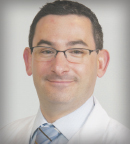In the TRANSCEND NHL 001 study reported in The Lancet, Jeremy S. Abramson, MD, and colleagues found that the autologous CD19-directed chimeric antigen receptor (CAR) T-cell agent lisocabtagene maraleucel (liso-cel) produced a high response rate in patients with relapsed or refractory large B-cell lymphomas.

Jeremy S. Abramson, MD
Study Details
In the multicohort seamless design trial, conducted at 14 U.S. centers, 344 adult patients underwent leukapheresis for manufacture of CAR-positive T cells (liso-cel) between January 2016 and July 2019. Eligible histologic subgroups consisted of individuals with diffuse large B-cell lymphoma; high-grade B-cell lymphoma with rearrangements of MYC and either BCL2, BCL6, or both; diffuse large B-cell lymphoma transformed from any indolent lymphoma; primary mediastinal B-cell lymphoma; and follicular lymphoma grade 3B.
Patients were assigned to the sequentially tested liso-cel target dose levels of 50 × 10⁶ (one or two doses), 100 × 10⁶, and 150 × 10⁶ CAR-positive T cells; treatment was given as sequential infusion of CD8-positive and CD4-positive CAR-positive T cells at equal target doses. Patients had received a median of three (range = 1–8) previous lines of systemic treatment.
Responses
Of the 344 patients undergoing leukapheresis, 269 received at least one dose of liso-cel (safety population). Of these, 256 patients were included in the efficacy-evaluable population (all patients who had confirmed positron emission tomography–positive disease and received at least one dose of liso-cel). The overall safety and activity of liso-cel did not differ by dose level; the recommended target dose was 100 × 10⁶ CAR-positive T cells as 50 × 106 CD8-positive and 50 × 106 CD4-positive CAR-positive T cells.
Among the 256 efficacy-evaluable patients, objective response on Lugano criteria as assessed by independent review committee was observed in 186 (73%), with complete response in 136 (53%). Median time to first complete or partial response was 1.0 month (range = 0.7–8.9 months). Median duration of response was not reached after median follow-up for response duration of 12.0 months; the estimated proportion of responders with response ongoing at 1 year was 55% among all responders and 65% among those with complete response.
KEY POINTS
- Objective response was observed in 73% of evaluable patients, with complete response in 53%.
- Median duration of response was not reached.
Median progression-free survival (after follow-up of 12.3 months) was 6.8 months; it was not reached among patients with complete response. Progression-free survival at 1 year was 44% for the total population and 65% among patients with complete response. Median overall survival was 21.1 months (after median follow-up of 17.5 months) and was not reached among patients with complete response; estimated 1-year rates were 58% for the total population and 86% among complete responders.
Adverse Events
The most common grade ≥ 3 adverse events were neutropenia (60%), anemia (37%), and thrombocytopenia (27%). Cytokine-release syndrome and neurological events of any grade occurred in 42% and 30% of patients and were grade ≥ 3 in 2% and 10%, respectively. Dose-limiting toxicity occurred in nine patients (6%), including one who died from diffuse alveolar damage. Febrile neutropenia occurred in 9% of patients.
Adverse events led to death in seven patients (3%), with causes consisting of diffuse alveolar damage, pulmonary hemorrhage, multiple organ dysfunction syndrome, cardiomyopathy, leukoencephalopathy, septic shock, and progressive multifocal leukoencephalopathy.
The investigators concluded, “Use of liso-cel resulted in a high objective response rate, with a low incidence of grade 3 or worse cytokine release syndrome and neurological events in patients with relapsed or refractory large B-cell lymphomas, including those with diverse histological subtypes and high-risk features. Liso-cel is under further evaluation at first relapse in large B-cell lymphomas and as a treatment for other relapsed or refractory B-cell malignancies.”
Dr. Abramson, of Massachusetts General Hospital, is the corresponding author for The Lancet article.
Disclosure: The study was funded by Juno Therapeutics, a Bristol Myers Squibb Company. For full disclosures of the study authors, visit thelancet.com.

